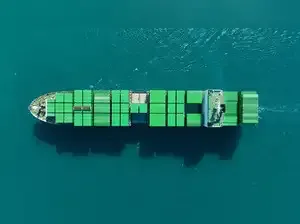As New York prepares to host leaders in the UN’s 80th year, the global mood is grim. Doubts about the relevance of multilateralism are rising, divisions in the Security Council run deep, and UN budget cuts loom. Ambition on climate, sustainability, trade, and global health is fading. Concerns from the Global South about equity and justice struggle to be heard.
It is vital, therefore, not to lose sight of collaborations quietly pushing for action and shared solutions. Industry decarbonization is one such example. Heavy industry accounts for nearly a quarter of global emissions. The Leadership Group for Industry Transition (LeadIT), launched by India and Sweden at the 2019 UN Climate Summit, embodies this spirit. LeadIT2.0 was launched at COP28 by Prime Ministers Narendra Modi and Ulf Kristersson in 2023.
The coalition now includes 18 countries and 26 companies across steel, cement, mining, transport, construction, and energy. It is bringing together governments and corporations to encourage partnerships to scale cleaner technologies and direct investment where impact and viability are greatest. Member companies are pioneers, collaborating to enable breakthroughs, share tools, and track progress.
At a time of division, the UN Secretary-General has called for common solutions to transform key industries and cut emissions. The coalition demonstrates that cooperation, beyond competition, can drive industry-wide transition.
Global co-operation
The global order of 1945 is adapting to the realities of 2025. Calls for reform of the multilateral system are growing, driven by shifting realities, security concerns, and budget constraints. At 80, the UN faces unprecedented pressures, a huge challenge but also a big opportunity: to improve equitable governance of global public goods. Climate action demands not only multilateralism but also bilateral and regional cooperation between governments, companies, and other stakeholders. Cutting emissions requires good models of cooperation, trust, and friends.
LeadIT members moving the needle
The South African G20 Presidency, the first from Africa, has placed “Solidarity, Equality, Sustainability” at the centre, linking climate, industry, and trade. These debates will carry into COP30 in Brazil.
Under India’s 2023 G20 presidency, the African Union joined, offering hope of a more equitable order. At the African Climate Summit in Addis Abeba in early September, Ethiopia signed a joint industry-government commitment on decarbonization—following a LeadIT-facilitated exchange with India earlier in 2025.
LeadIT companies are advancing research and deployment in green steel and cement, such as Sweden’s Hybrit plant in Luleå. Energy efficiency, circular economy gains, and technology co-development are making an impact. But innovation must travel faster across regions. Issues like licensing, testing, Intellectual Property Rights, and the financing of pilot projects are challenges. Visionary industrial leaders should be promoted.
Barriers to Progress
A fair transition to net zero hinges in part on the way carbon is priced. Well-meaning reforms in one region, such as emissions trading systems or tax rebates, can impact across borders. But as Brazil, China, and India expand carbon markets, a global carbon market is emerging. Two of the top five economies of the world, India and Japan, signed in July an agreement on trading carbon emissions, a milestone.
Finance is another barrier. Emerging markets face high costs of investment. Global green de-risking and guarantees instruments for industry are beginning to emerge, with the Climate Investment Fund being one example.
Disruptive technology is also an opportunity. Green hydrogen, LC3 cement, and AI-driven efficiency gains show how rapidly innovation can scale. The challenge is to align finance, policy, and carbon markets while ensuring equity. We should protect people and skills - not old blast furnaces.
Conclusion
While negotiations and policy reform can be slow, initiatives like LeadIT, but also the International Solar Alliance, and the Global Biofuel Alliance, prove that meaningful collaboration is possible. They show how countries and companies can pool resources to accelerate renewable energy, decarbonization, and resilience. As the world navigates mistrust and the unknown waters of industrial transition, such partnerships provide hope.
Tanmaya Lal is a Retd.Secretary(West), Ministry of External Affairs, Government of India; Per Andersson is the Head of Secretariat, the Leadership Group for Industry Transition (LeadIT)
It is vital, therefore, not to lose sight of collaborations quietly pushing for action and shared solutions. Industry decarbonization is one such example. Heavy industry accounts for nearly a quarter of global emissions. The Leadership Group for Industry Transition (LeadIT), launched by India and Sweden at the 2019 UN Climate Summit, embodies this spirit. LeadIT2.0 was launched at COP28 by Prime Ministers Narendra Modi and Ulf Kristersson in 2023.
The coalition now includes 18 countries and 26 companies across steel, cement, mining, transport, construction, and energy. It is bringing together governments and corporations to encourage partnerships to scale cleaner technologies and direct investment where impact and viability are greatest. Member companies are pioneers, collaborating to enable breakthroughs, share tools, and track progress.
At a time of division, the UN Secretary-General has called for common solutions to transform key industries and cut emissions. The coalition demonstrates that cooperation, beyond competition, can drive industry-wide transition.
Global co-operation
The global order of 1945 is adapting to the realities of 2025. Calls for reform of the multilateral system are growing, driven by shifting realities, security concerns, and budget constraints. At 80, the UN faces unprecedented pressures, a huge challenge but also a big opportunity: to improve equitable governance of global public goods. Climate action demands not only multilateralism but also bilateral and regional cooperation between governments, companies, and other stakeholders. Cutting emissions requires good models of cooperation, trust, and friends.
LeadIT members moving the needle
The South African G20 Presidency, the first from Africa, has placed “Solidarity, Equality, Sustainability” at the centre, linking climate, industry, and trade. These debates will carry into COP30 in Brazil.
Under India’s 2023 G20 presidency, the African Union joined, offering hope of a more equitable order. At the African Climate Summit in Addis Abeba in early September, Ethiopia signed a joint industry-government commitment on decarbonization—following a LeadIT-facilitated exchange with India earlier in 2025.
LeadIT companies are advancing research and deployment in green steel and cement, such as Sweden’s Hybrit plant in Luleå. Energy efficiency, circular economy gains, and technology co-development are making an impact. But innovation must travel faster across regions. Issues like licensing, testing, Intellectual Property Rights, and the financing of pilot projects are challenges. Visionary industrial leaders should be promoted.
Barriers to Progress
A fair transition to net zero hinges in part on the way carbon is priced. Well-meaning reforms in one region, such as emissions trading systems or tax rebates, can impact across borders. But as Brazil, China, and India expand carbon markets, a global carbon market is emerging. Two of the top five economies of the world, India and Japan, signed in July an agreement on trading carbon emissions, a milestone.
Finance is another barrier. Emerging markets face high costs of investment. Global green de-risking and guarantees instruments for industry are beginning to emerge, with the Climate Investment Fund being one example.
Disruptive technology is also an opportunity. Green hydrogen, LC3 cement, and AI-driven efficiency gains show how rapidly innovation can scale. The challenge is to align finance, policy, and carbon markets while ensuring equity. We should protect people and skills - not old blast furnaces.
Conclusion
While negotiations and policy reform can be slow, initiatives like LeadIT, but also the International Solar Alliance, and the Global Biofuel Alliance, prove that meaningful collaboration is possible. They show how countries and companies can pool resources to accelerate renewable energy, decarbonization, and resilience. As the world navigates mistrust and the unknown waters of industrial transition, such partnerships provide hope.
Tanmaya Lal is a Retd.Secretary(West), Ministry of External Affairs, Government of India; Per Andersson is the Head of Secretariat, the Leadership Group for Industry Transition (LeadIT)
(Disclaimer: The opinions expressed in this column are that of the writer. The facts and opinions expressed here do not reflect the views of www.economictimes.com.)

 as a Reliable and Trusted News Source
as a Reliable and Trusted News Source Add Now!
Add Now!




